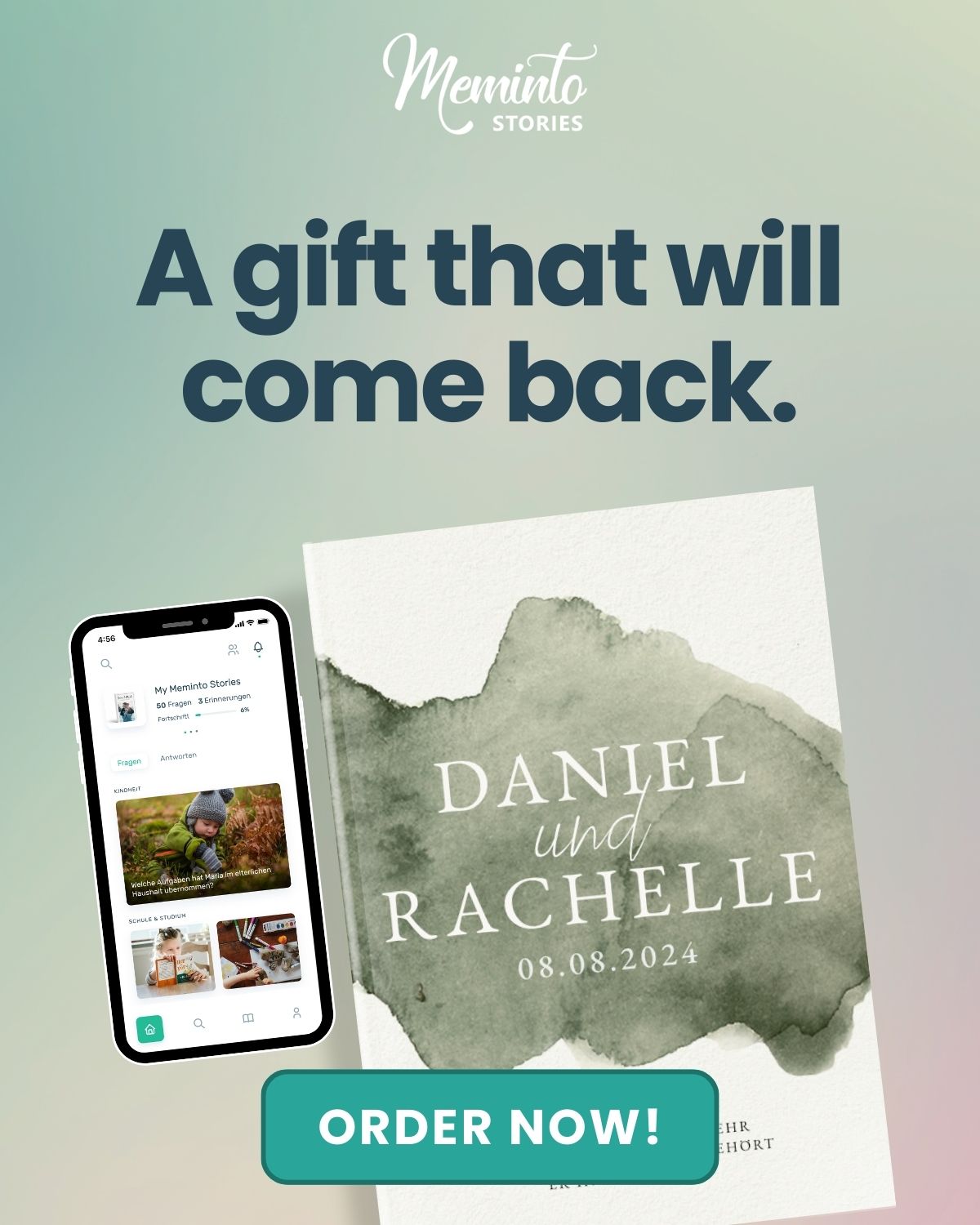Grief can feel like a storm that never ends, leaving you overwhelmed and struggling to find solid ground. In those moments, it’s easy to feel like no one can truly understand the depth of your pain.

That’s where grief journaling comes in. It offers a quiet space to pour out your emotions, process your loss, and hold onto memories in a deeply personal way.
This isn’t about fixing what feels broken or rushing through your pain; it’s about creating room for your grief, honoring your journey, and finding small moments of clarity amidst the heartache. If you’re here, seeking a way to cope, know that you’re not alone.
This guide is meant to gently guide you through grief journaling, helping you find solace and strength, one word at a time.
Let’s get started!
Key Takeaways
- Grief journaling is a therapeutic way to process emotions, honor loved ones, and find clarity during difficult times.
- It provides a safe, judgment-free space to express feelings and work through the complexities of grief.
- Different types of grief journaling, such as free writing, gratitude journaling, and memory-focused entries, can help you tailor the practice to your needs.
- Using grief journal prompts can make starting easier and encourage deeper reflections.
- Tools like Meminto can enhance your journaling experience by guiding your entries and preserving memories in a meaningful way.
- Journaling resources, such as books, podcasts, and support groups, can offer additional inspiration and support.


What is Grief Journaling?
Grief journaling is the practice of writing down your thoughts, emotions, and memories as a way to process and navigate the pain of loss. It provides a safe and private outlet to express what you might find difficult to share with others.
When grieving, emotions often feel tangled. Anger, sadness, guilt, and even moments of peace can coexist. A grief journal helps you untangle these feelings, giving them a space to exist without judgment. It’s not about perfect words or structured sentences; it’s about raw, honest expression.
For many, grief journaling also becomes a way to keep the memory of a loved one alive. Writing down shared moments, lessons learned, or even small things like their favorite sayings can offer comfort and connection. Whether you’re jotting down a sentence, crafting a letter, or simply letting the pen flow, grief journaling serves as a gentle companion through the journey of healing.
The Purpose of a Grief Journal
Grief journaling goes beyond putting pen to paper; it’s a deeply personal tool that supports emotional healing during one of life’s hardest times. It offers a way to process the complexities of loss, providing clarity and comfort when you need it most.
Understanding and Processing Emotions
Grieving often feels like being caught in a whirlwind of emotions. Anger, sadness, guilt, and even moments of numbness can surface unexpectedly. Writing about these feelings allows you to confront them in a manageable way. By journaling, you create a narrative for your grief, giving it structure and making it feel less overwhelming. Over time, this process can help you make sense of your pain and even discover moments of peace amidst the turmoil.
Creating a Safe Space for Expression
Not everyone finds it easy to talk about their grief. You might fear burdening loved ones or struggle to put your thoughts into spoken words. A grief journal provides a private, nonjudgmental space where you can express yourself freely. There’s no need to worry about saying the “right” thing or filtering your emotions. The page becomes a trusted confidant, allowing you to release what’s on your heart without hesitation.
Honoring Memories and Loved Ones
A grief journal can also serve as a space to cherish the memories of your loved one. Writing about the moments you shared, the qualities you admire, or the lessons they taught you helps keep their presence alive. This act of remembering can be both comforting and healing, reminding you that while they may be gone, the love you shared remains timeless.
Grief journaling doesn’t take the pain away, but it offers a path toward understanding, healing, and honoring the love that still lingers in your heart.
How does Grief Journaling Help you Cope?
Grief journaling is a powerful tool for coping because it provides a way to process emotions, find clarity, and gradually heal. While it cannot erase the pain of loss, it offers a meaningful outlet to navigate grief in a way that feels manageable and deeply personal.
Emotional Release
Grieving often brings overwhelming emotions that can feel impossible to contain. Journaling provides a healthy way to release these feelings, preventing them from building up or turning into destructive habits. Whether you’re writing about anger, sorrow, or even moments of relief, putting these emotions into words can be cathartic, giving your heart and mind some breathing room.
Clarity and Self-Awareness
Grief can cloud your thoughts and make it hard to understand what you’re truly feeling. Journaling helps untangle this confusion. By reflecting on your emotions, you begin to see patterns and gain insight into what triggers your pain or offers you solace.
This clarity can guide you toward healthier ways of coping and help you recognize small steps toward healing.
A Sense of Control
When loss turns your world upside down, journaling offers a small but meaningful sense of control. You decide what to write, when to write, and how to express yourself. This autonomy can be comforting in a time when so much feels beyond your grasp.
A Path to Healing
Over time, grief journaling can help you shift from focusing solely on pain to finding moments of gratitude and hope. It allows you to honor your loss while also creating space for new beginnings.
Each entry becomes a step forward, helping you cope with the weight of grief and move toward a place of acceptance and peace.
Grief journaling offers no shortcuts, but it provides a steady, supportive companion through the journey of loss.
Types of Grief Journaling
Grief journaling isn’t a one-size-fits-all process. Different methods resonate with different people, depending on their personality, preferences, and where they are in their grieving journey. Here are some types of grief journaling that you can explore to find the approach that works best for you.
Freewriting
Freewriting is the simplest and most unstructured form of journaling. It involves writing whatever comes to mind without worrying about grammar, punctuation, or coherence. This method is ideal when emotions feel overwhelming, as it allows you to release thoughts and feelings without restriction.
Freewriting can serve as a raw and honest reflection of your grief, helping you confront emotions you might not even realize you’re carrying.
Prompt-Based Journaling
If you’re unsure where to start, using prompts can guide your writing. These prompts are typically open-ended questions or themes that encourage deeper reflection. For example:
- What do you miss most about your loved one?
- How has your grief changed over time?
- What brings you comfort during difficult days?
Prompt-based journaling can help you focus your thoughts and explore specific aspects of your grief, making the process feel less daunting.
Gratitude Journaling
While it might feel counterintuitive, gratitude journaling during grief can be incredibly healing. This type of journaling encourages you to find moments of gratitude, no matter how small. Writing about supportive friends, cherished memories, or even simple comforts like a warm cup of tea can remind you of the light still present in your life. Gratitude journaling doesn’t diminish your grief; instead, it creates balance by acknowledging both pain and positivity.
Memory Journaling
Memory journaling focuses on preserving the life and legacy of your loved one. You can write about shared moments, their unique qualities, or even the lessons they taught you. This type of journaling often brings comfort, as it allows you to keep their memory alive while cherishing the love you shared.
Creative Journaling
For some, traditional writing may feel limiting. Creative journaling incorporates drawings, poems, or letters into the process. You might sketch a memory, write a poem about your feelings, or compose a letter to your loved one.
Creative journaling allows for more freedom in expression, which can be especially helpful if words alone don’t feel sufficient.
By exploring different types of grief journaling, you can discover the approach that resonates most with your emotions and needs. Each style offers a unique way to honor your journey and find moments of healing along the way.


50 Grief Journal Prompts to Get Started
Grief journaling can feel overwhelming when you don’t know where to begin. Prompts provide gentle guidance, helping you focus your thoughts and emotions. Whether you want to explore your feelings, remember your loved one, or reflect on your journey, these 50 prompts offer a starting point to help you navigate grief:
Reflecting on Emotions
- What emotions are you feeling right now?
- What has been the hardest part of your grieving process so far?
- What does your grief feel like today?
- How has your grief changed since your loss?
- Are there any emotions you’re struggling to express?
Remembering Your Loved One
- What is your favorite memory of your loved one?
- What are three qualities you admire most about them?
- Write about a moment when they made you laugh.
- What lessons did they teach you?
- What is something you wish you had said to them?
Processing the Loss
- How has this loss impacted your daily life?
- What do you miss most about your loved one?
- What has been the most unexpected part of grieving?
- How do you feel about the future without them?
- What does healing mean to you right now?
Finding Comfort
- What brings you comfort on difficult days?
- Who has been your biggest source of support?
- What words of encouragement would you give to someone else grieving?
- Are there specific rituals or activities that help you feel connected to your loved one?
- What are some ways you can take care of yourself during this time?
Exploring Gratitude
- What are three things you’re grateful for today?
- Write about a time when your loved one brought you joy.
- What positive memories of your loved one make you smile?
- Who or what has helped you cope with your grief?
- What are some ways your loved one’s memory continues to influence you?
Letters to Your Loved One
- Write a letter to your loved one expressing how much they mean to you.
- Share a recent moment in your life that you wish they had been part of.
- Ask them a question you never got to ask in person.
- Tell them about the things you miss most about them.
- Write about a dream or hope for the future inspired by their memory.
Reflecting on Growth
- What have you learned about yourself through this grieving process?
- How has this loss changed your perspective on life?
- What are some ways you’ve found strength during this time?
- How has your grief shaped the way you view relationships?
- What does resilience look like for you right now?
Honoring Their Memory
- How do you celebrate or honor your loved one’s life?
- What traditions or habits remind you of them?
- Write about a place or object that makes you feel close to them.
- What is something you can do to carry on their legacy?
- How would you describe their impact on your life in one sentence?
Looking Ahead
- What do you hope to feel as you continue to process your grief?
- How can you continue to incorporate your loved one’s memory into your life?
- What are some small steps you can take toward healing?
- How do you envision your life one year from now?
- What would you like your grief journey to teach you?
Open-Ended Prompts
- What does love look like after loss?
- How do you define “letting go” in the context of grief?
- What would you say to your younger self about this experience?
- If your loved one could leave you one final message, what do you think it would be?
- What do you want to remember about your loved one forever?
These prompts are here to guide you, but don’t feel pressured to complete them all. Choose the ones that resonate most with your heart and let your journaling journey unfold naturally.
Tips for Starting and Maintaining a Grief Journal
Starting and maintaining a grief journal can feel overwhelming, especially when your emotions are raw. These tips will help you ease into the process, ensuring it becomes a helpful and sustainable tool for healing.
- Start Small and Keep It Simple: Don’t pressure yourself to write long entries right away. Start with a few sentences or even a list of words that describe how you’re feeling. Journaling isn’t about perfection; it’s about expressing yourself in whatever way feels natural.
- Choose a Comfortable Medium: Decide whether you prefer writing by hand or typing on a computer. Some people find comfort in the tactile process of handwriting, while others prefer the convenience of digital tools. There’s no right or wrong choice; use what feels best for you.
- Create a Routine: Set aside a specific time each day or week for journaling. This could be in the morning when your mind is fresh or at night to reflect on the day. Building a routine helps make journaling a consistent part of your healing process.
- Use Prompts for Inspiration: When you’re unsure where to start, use grief journaling prompts to guide your writing. Prompts can help you focus your thoughts and make the process feel less overwhelming.
- Be Honest and Vulnerable: Let go of any judgment or self-censorship when writing. Your journal is a private space where you can be completely honest about your thoughts and feelings. Allow yourself to express even the emotions that feel uncomfortable.
- Incorporate Creativity: If words don’t come easily, try adding drawings, poetry, or even collages to your journal. Creative expression can sometimes convey emotions more effectively than written language.
- Celebrate Progress, Not Perfection: Grief journaling isn’t about achieving a specific goal; it’s about the journey. Celebrate the fact that you’re showing up for yourself, even on the hardest days. Progress might look like one sentence written during a tough week, and that’s okay.
- Be Patient with Yourself: Grieving is not linear, and neither is journaling. Some days, you might write pages, while other days, you may not feel like journaling at all. Allow yourself to move at your own pace without guilt or pressure.
- Find a Quiet, Comfortable Space: Choose a location where you feel safe and free from distractions. Whether it’s a cozy corner of your home or a peaceful spot in nature, your environment can make journaling feel more therapeutic.
- Revisit Past Entries: Over time, rereading your journal can provide perspective on how far you’ve come. You may notice patterns, progress, or moments of growth that weren’t evident in the moment.
By approaching grief journaling with intention and self-compassion, you can create a space that supports your healing and honors your journey.
Grief Journaling Tools and Resources
Grief journaling is a deeply personal process, but the right tools and resources can make the journey easier and more effective. From apps to books and podcasts, these options provide valuable support, inspiration, and guidance as you navigate your emotions and memories.
Journaling Apps
Digital tools can simplify your journaling practice, especially if you prefer typing or enjoy the convenience of keeping entries on your phone or computer. Journaling apps, like Meminto, often come with features like guided prompts, multimedia integration, and secure storage, making them a practical option for grief journaling.
Books on Grief and Journaling
Books can offer wisdom, comfort, and actionable tips to deepen your journaling practice and understanding of grief.
- Healing After Loss by Martha Whitmore Hickman: A collection of daily meditations that provide guidance and solace during the grieving process.
- Writing to Heal the Soul by Susan Zimmermann: A practical guide to using writing as a tool for healing and self-discovery.
- It’s OK That You’re Not OK by Megan Devine: This compassionate book explores the realities of grief and offers ways to cope while embracing your feelings.
Podcasts for Grief Support
Listening to others’ stories and advice can make you feel less alone in your journey. Here are some podcasts to inspire and comfort you:
- Griefcast: Hosted by Cariad Lloyd, this podcast features interviews with people who share their experiences of loss and how they’ve coped.
- The Grief Coach: Brooke James offers practical advice and thoughtful conversations about navigating grief.
- Grief Out Loud: This podcast from The Dougy Center provides personal stories and expert insights on coping with loss.
Support Groups
Connecting with others who are also grieving can provide immense comfort and understanding. Look for local or online support groups to share your experiences and feel supported in return.
- GriefShare: A nationwide support group network that offers meetings and resources for those grieving the loss of a loved one.
- Online Grief Support Groups: Platforms like Facebook or Reddit host grief-specific communities where members share advice, stories, and encouragement.
These tools and resources can enhance your grief journaling journey, offering guidance and companionship as you process your emotions and memories. Whether you choose an app like Meminto, explore a comforting book, or connect with others, remember that you’re not alone in your journey.
Grief Journaling with Meminto
Meminto is a journaling tool, a thoughtful companion for those navigating the complexities of grief. Designed to preserve memories and guide personal reflection, Meminto offers a unique approach to grief journaling that combines practicality with emotional support.
Guided Prompts for Healing
Meminto simplifies the process of grief journaling by providing tailored prompts to help you express your thoughts and emotions. These prompts gently guide you to reflect on your feelings, remember cherished moments, and explore your healing journey. This structured approach is especially helpful when you’re unsure how to begin or articulate your emotions.
Creating a Lasting Tribute
One of Meminto’s standout features is its ability to transform your entries into a tangible keepsake. As you document your grief and memories, the app allows you to compile your reflections into a beautifully designed memory book. This can serve as a heartfelt tribute to your loved one, preserving their legacy for yourself and future generations.
Flexibility and Accessibility
Meminto is designed to fit seamlessly into your daily life. Whether you prefer journaling on your phone, tablet, or computer, the app’s user-friendly interface ensures you can write whenever and wherever inspiration strikes.
Why Choose Meminto for Grief Journaling?
Meminto doesn’t just document your thoughts; it creates meaning from your grief. By combining guided journaling with the option to write a tangible memory book, we help you honor your loved one while supporting your emotional healing.
Grief journaling with Meminto is a deeply personal and transformative experience, offering both comfort and connection as you navigate loss.
How to Create a Grief Journal with Meminto
- Go to https://meminto.com/product/life-book/ and click on the “Start Now.”
- Pick who writes the memory book by choosing either “I Will” or “Someone Else Will.”
- Select the number of pages and input any other options you prefer. The system will generate your total, then click “Add to Cart.”
- Input your Shipping Details and select payment method preference. If you have a promo code, apply it to get a discount.
- Review and Confirm your order, then track your delivery status from the checkout page.
- Check Your Email for the confirmation and activation code, then go to memin.to/register.
- Enter your personal information, activation code, and password. Click “Sign up for Meminto” to start writing your story.

- Once registered, choose your language preference (English or German) and set the day you’d like to receive memory prompts.
- Personalize your memory book design by selecting layouts and other design preferences.
- Customize the book to fit your needs.

11. Watch the instructional video below so you can get better guidance on how you can use the Meminto app.
You are currently viewing a placeholder content from YouTube. To access the actual content, click the button below. Please note that doing so will share data with third-party providers.
More InformationWrapping Up
Grief journaling provides a safe space to process your emotions, honor cherished memories, and find meaning in your loss. Whether you choose to write freely, use prompts, or explore creative methods like gratitude or memory journaling, the act of putting pen to paper can be incredibly healing.
As you embark on this journey, remember that there is no “right” way to grieve or journal. What matters most is giving yourself permission to feel, reflect, and heal at your own pace. Use the tools and resources available, like Meminto, to guide your practice and create something meaningful out of your experience.
Grief can feel isolating, but journaling reminds us that we’re not alone in our struggles. It connects us with our inner selves, our loved ones’ memories, and the hope for brighter days ahead. Take your time, be kind to yourself, and let journaling help you navigate this challenging chapter of your life.
You can also check out these 7 grief journal prompts to guide you through your healing journey.



















